It is no secret that Islamophobia is at an all-time high in India and the world, following a major election in our country this year and a devastating humanitarian crisis and genocide currently raging in Palestine. The ripple effect of the same is felt every day in my life, although it is not new for Muslims anywhere around the globe.
With increasing incidents of violence, death threats and lynchings, the mental health of Muslims in India is rapidly deteriorating. It is especially difficult for women and hijabi women in Delhi, the crime capital of the country, where it is never about women’s clothing until it identifies you.
Personal experiences of a hijabi Muslim
The horrors of crime in Delhi seldom leave my mind as a Muslim woman, but I am especially conscious of them while travelling on the metro. The stares begin at the security check that I can never rush through at the risk of looking like I have something to hide. As I reach the platform, I make my way to the women’s coach in search of respite, only to be subjected to added scrutiny over my outfit and hijab and they aren’t averting gazes this time. I feel overly seen while minding my own business. Women avoid sitting beside me on the metro and I’m left feeling like an alien in my city.
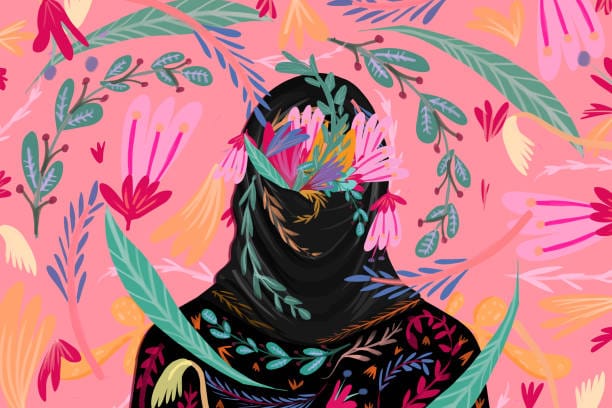
Changing metro lines is more dreadful as I fear someone pulling at or snatching my hijab away. I also choose to stay as far away from the train track as possible while waiting, lest someone with an extreme anti-Muslim mindset try to push me off it. I wish I could be called dramatic and proved wrong but the increasing incidents of crimes against Muslim people and bulldozing of Muslim homes has only added to my anxieties. The killing of a 19-year-old Brahmin boy who was mistaken as a Muslim makes me wonder to what extent the vigilantes can go and what would happen if he was a Muslim.
Hate crime and alienation have become part of our lives. While appearing for a postgraduate entrance examination, I was manhandled and told to take off my hijab during the frisking process. It came initially as a shock and soon felt like a justification for all my hesitation. Failed attempts to politely reason with the security personnel led me to loosen it to make my ears visible for the duration of the exam. The invigilators were rude and uncooperative as well and my state of mind was not one appropriate to give an exam in.
After the horrid experience, I had to re-evaluate my career choices since it proved that my options were few and far between. I now remain anxious and hypervigilant around new people and feel withdrawn due to social exclusion.
Hijab and identity
Following the hijab ban in Karnataka, it has become a political statement to don the hijab in public, showing great courage. At the basic level, it is a piece of cloth and at a personal one, it is a choice. However, given the delicate socio-political atmosphere of the country, the concept is always up for debate with no mentions of autonomy, little female representation and widespread misinformation for political gain.
People usually put us in a box. Hijabi is more often than not, equated with a traditional mindset, orthodox thinking, quiet and timid personality. It reduces us to a label, generalises us and assumes that we have no unique experiences.
People usually put us in a box. Hijabi is more often than not, equated with a traditional mindset, orthodox thinking, quiet and timid personality. It reduces us to a label, generalises us and assumes that we have no unique experiences. I have never been one to care about what people think but I often wonder if that is how I’m supposed to be. My individuality becomes a question and a confusing one for someone who is learning about themselves every day. Do I try to fit myself in the box? Do I make a new box to fit myself in? Do I justify being different or is that wrong in another way? Finding answers to these questions is probably a lifelong quest.
Islamophobia and microaggressions
No one is safe from Islamophobia. Blatant racism and islamophobia are often called out, but the new fad is microaggression which is usually left undiscussed. These include derogatory terms used casually, subtle references to identity and hijab, ISIS jokes, and a general bias against Muslims. It propagates a sense of alienation and imminent danger with no place to feel safe enough. In a research paper published in the Journal of Health Sciences, it was found that Muslims were at a higher risk of anxiety in India compared to Hindus.
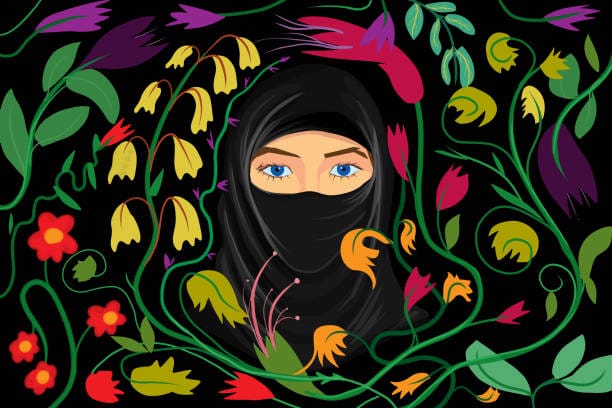
The sense of instability that surrounds us is detrimental to our mental health as a community and hinders everyday activities as well. Surviving means putting livelihoods, jobs, and lives in jeopardy with constant stress about the future.
The othering of Muslims was a slow process which has been in the works for a decade now. Language implicating the “us and them” complex, screaming on prime time news that “they” are taking over, screams of Jai Shri Ram on the streets, flags designating political stance on every shop, and the unsolicited opinions are all a part of the long list of discriminatory practices prevalent. Often shrugged off as zamana hi aisa hai, it has added a layer of anxiety and discomfort to my mental health. Not to mention the trust issues that come with dealing with lotus apologists.
The incessant avoidance by middle-class Muslims has led to the young generation trying harder to fit in, ignoring microaggressions and in turn aggravating their mental health issues in an attempt to not make it a big deal. In addition to the cultural disregard for mental health, the situation on the ground is dire for young Muslims who are struggling with identity, safety and mental health.
As a young hijabi Muslim woman finding my path in the world and figuring out my life, career, emotions, family and relationships, it is hard to constantly be on the lookout for my safety. It is not only tiring but exceedingly unfair to a Delhiite who has only known Delhi as home.
About the author(s)
Sara Siddiqui is a freelance journalist from Delhi. Her passion for writing and the need for social justice drew her to journalism. She believes words can change the world. Sara has bylines in the Indian Express and the Millennium Post as well as published work online. She posts her original poems, book reviews, and personal essays on her WordPress blog.
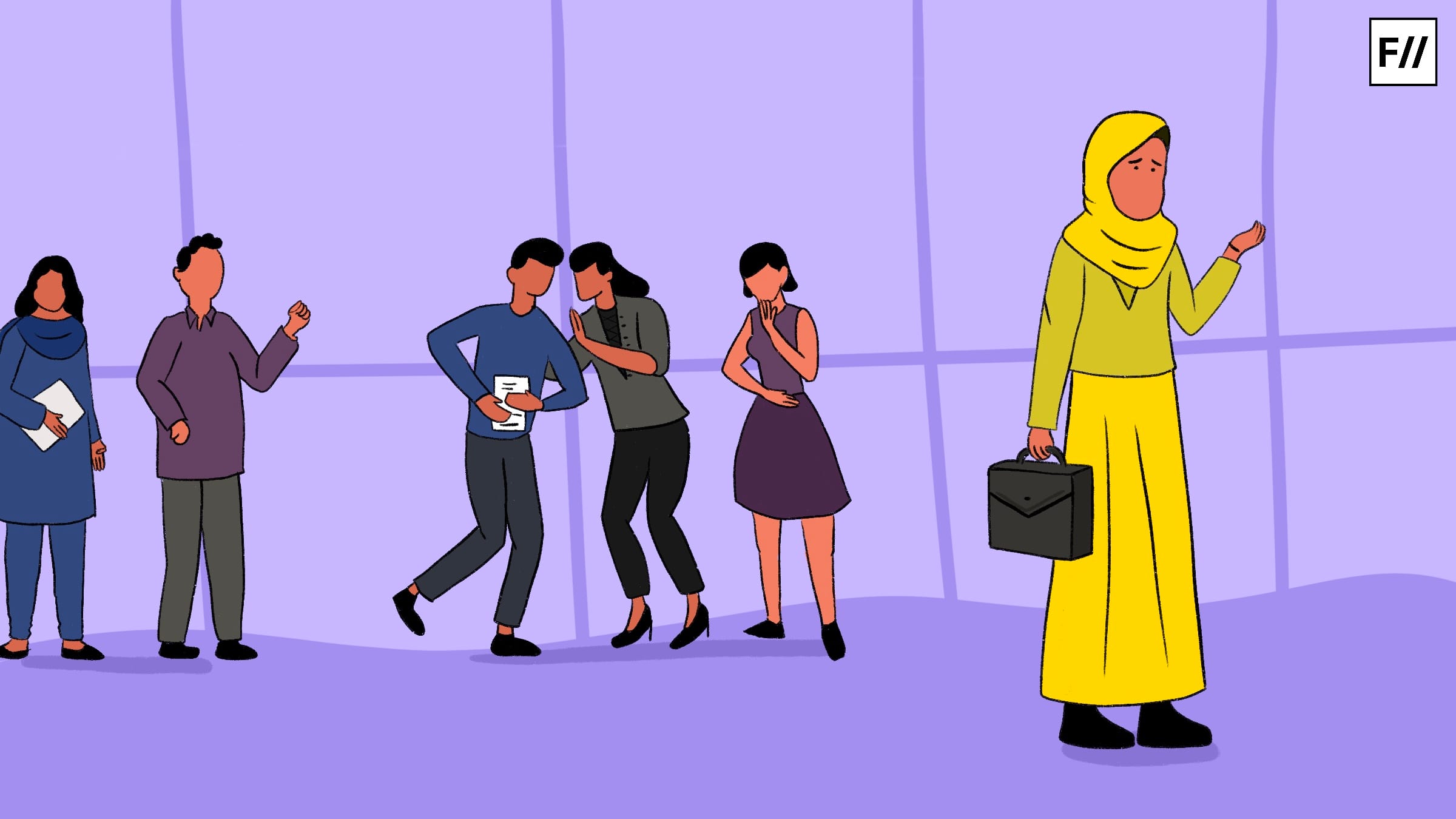
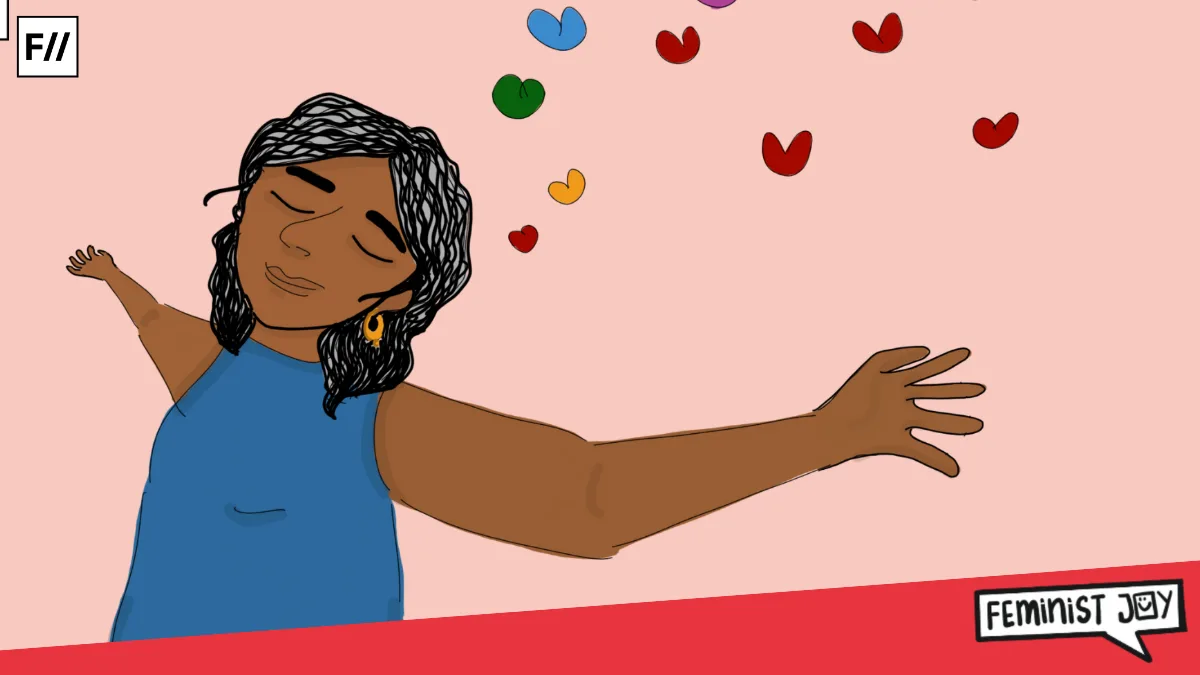
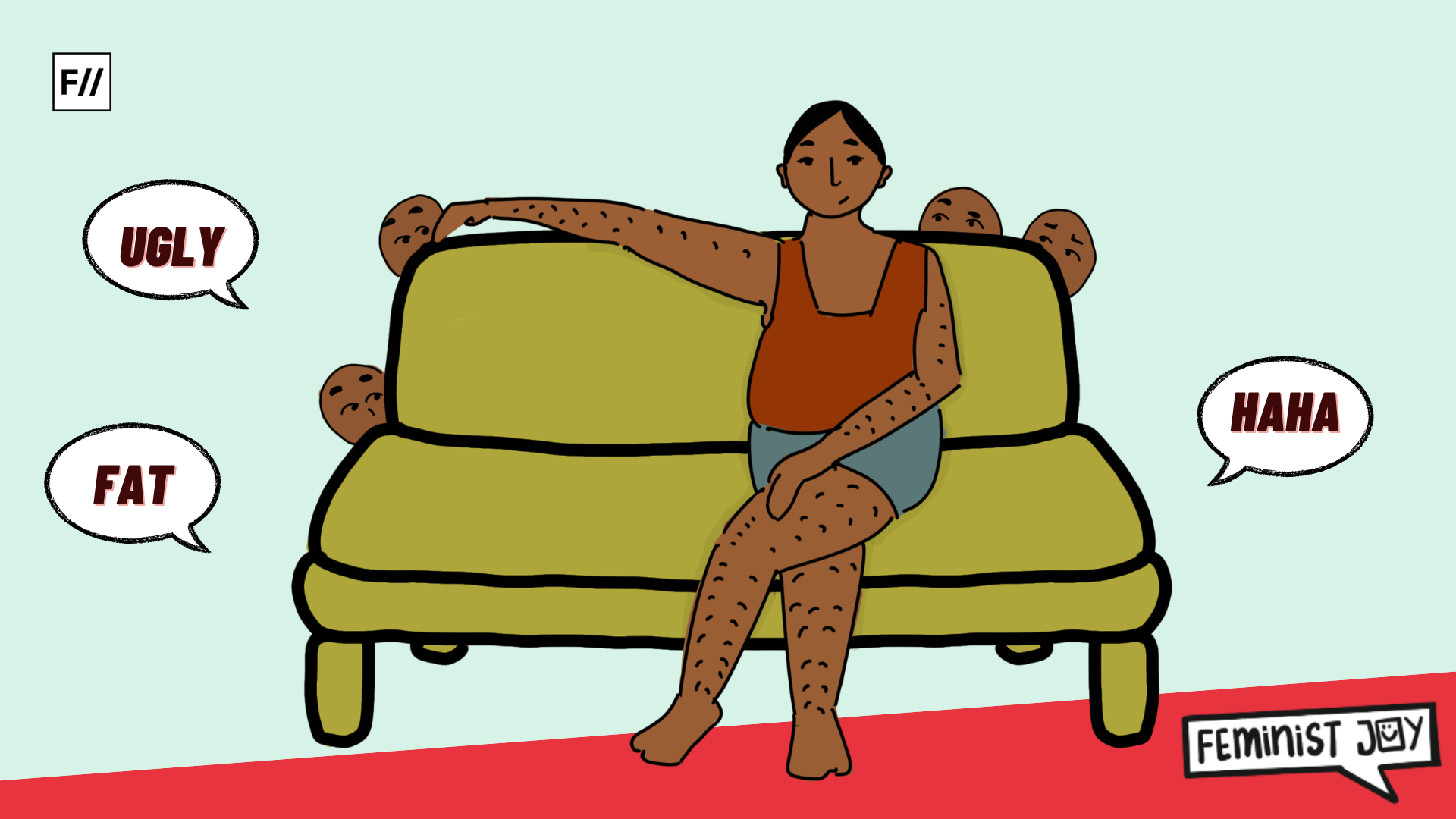
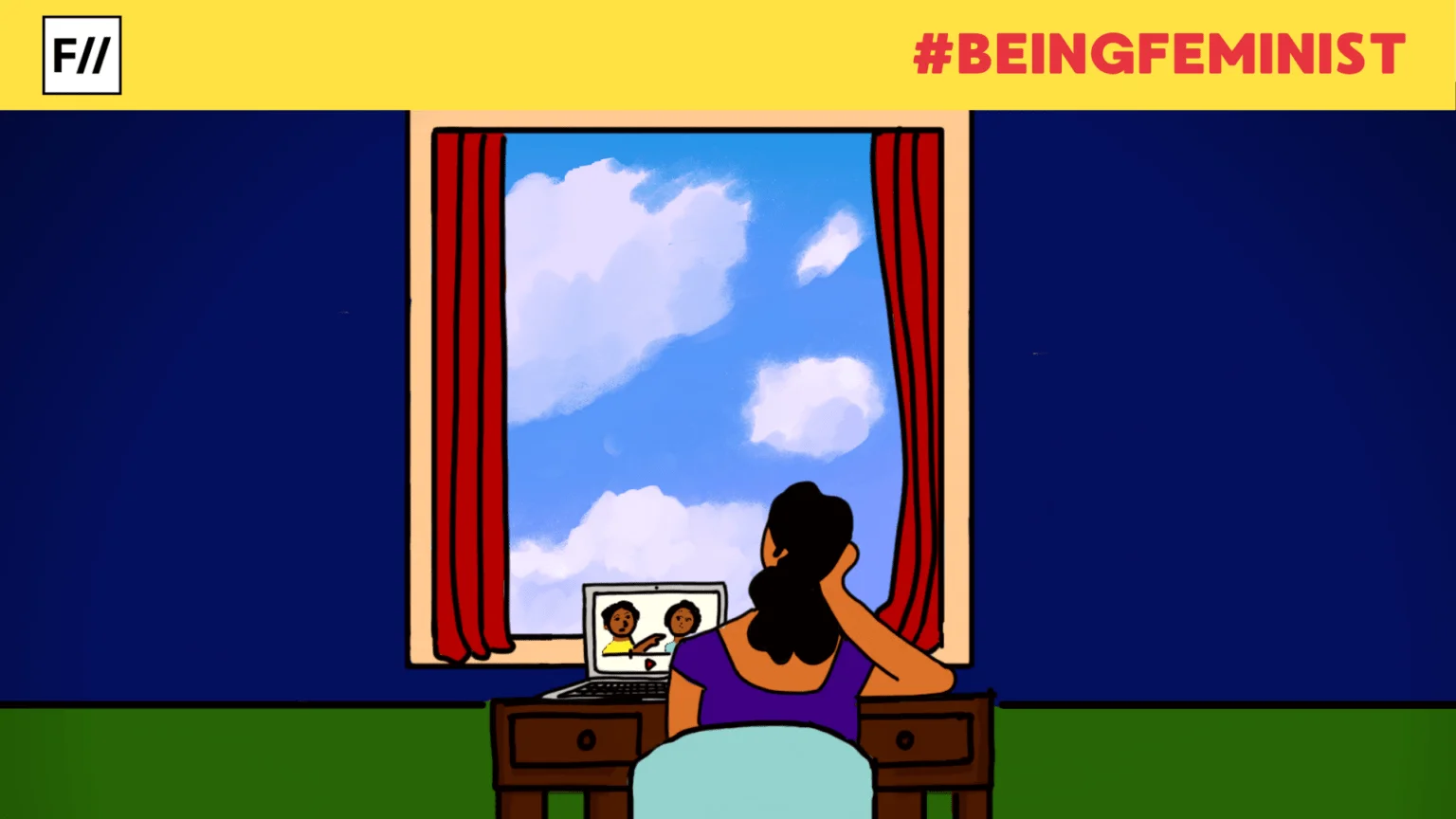

A heartbreaking but a very important read for the times we are in!
Please do not give excuses to justify patriarchy. Whether it is hijab, burqa or ghoonghat, veiling can never be a choice, unless and until it’s “forcefully imposed choice since childhood brainwashing”. There’s no need to justify the orthodox upbringing and social conditioning by saying it a “choice”. For a bird trapped in a cage, ‘being caged’ becomes the automatic ‘choice’. But, that doesn’t change the reality. Please get over this burqa-hijab choice. In countries like Iran and Afghanistan, women are fighting so hard to thrash patriarchy. And, you guys are promoting it by calling it so-called choice. Please reconsider this “choice”. I hope you breathe well under the burqa. If you can, then please get a life beyond mere breathing. All the best !
Nobody here is justifying patriarchy! Wearing hijab / burqa / niqab is not mearly a choice, its a command of our Lord, no muslim women cover up for the men or under their pressure. It’s called a choice, because it’s our choice to obey or disobey our Lord. And let me clarify I do breathe well under niqab and I’m doing much more in my life other than breathing.
Command of our Lord ? Which Lord ? Don’t you have the choice to choose beyond “his command” ? Isn’t it also patriarchal ? Dear, you are totally brainwashed. Fine ! “Follow” the command. And, breathe well under the box. The day women will get over this ‘patriarchal bargaining’ would be day of their real self. Otherwise, jee toh jaanwar bhi rhe hain. No wonder why there is still domination of one gender over the other since so many centuries. Men ko kuch zaroorat hi nhi hai kuch krne ki, women ne hi khud sab kuch kr rkha hai. Problem arises when such culture spreads like wildfire. Hope you get well soon, sister ! 🙏
By telling her what to do, you are doing exactly what you are saying patriarchal society did – don’t put your thinking on her, just read what she has expressed and see how she feels. she is a grown woman, can make her own choices and she has!
Well written Sara, keep posting
Well written article, and an important read for everyone